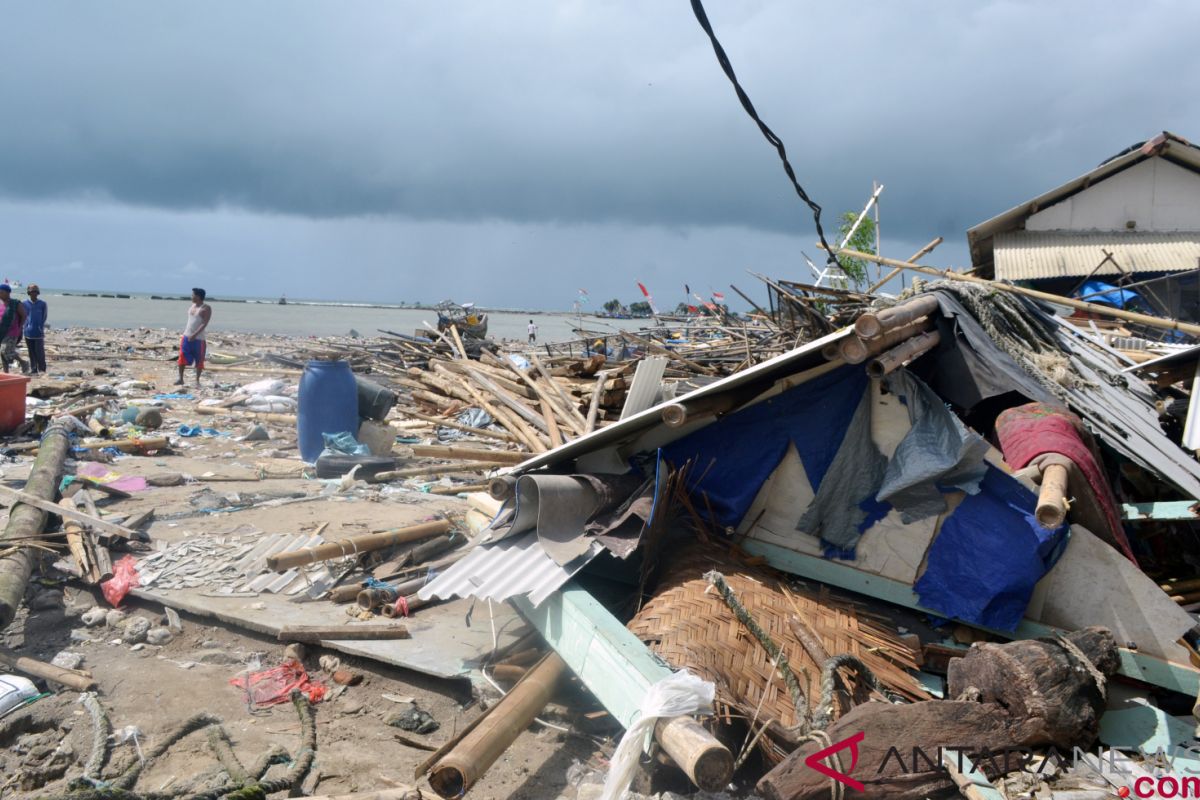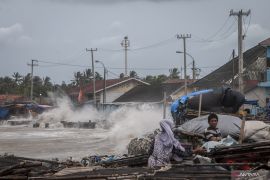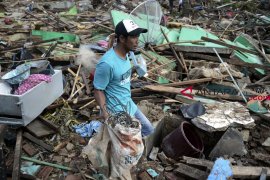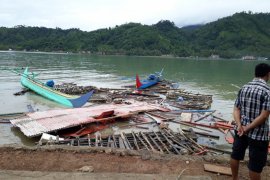Spokesman of the National Disaster Mitigation Agency (BNPB) Sutopo Purwo Nugroho made the remarks at a press gathering here, adding that the tsunami affected the five districts of Pandeglang and Serang in Banten Province and the districts of South Lampung, Pesawaran, and Tanggamus in Lampung Province.
"(The death toll) can possibly increase, the most severe impact being in Pandeglang," Nugroho revealed.
The BNPB also revealed that until the third day after the Sunda Strait tsunami, 1,485 people were injured, 154 went missing, and 16,082 people were displaced by the tsunami that occurred on Saturday night on December 22, 2018.
According to Sutopo, of the five districts, Pandeglang suffered the worst impact, with 290 people dead, 1,143 injured, 77 missing, and 14,395 displaced.
In South Lampung District, 108 people died, 279 were injured, nine were missing, and 1,373 people were displaced.
Meanwhile, in Serang District, 29 people died, 62 were injured, 68 were missing, and 83 were displaced. One person died, one was injured, and 231 were displaced in Pesawaran, while one died in Tanggamus.
In the face of the natural disaster, the emergency response period has been applied for 14 days for Pandeglang District, from December 22, 2018, to January 4, 2019, while for South Lampung, the emergency response period is applicable for a week, on December 23-29, 2018.
"It can likely be extended in accordance with the conditions," he added.
Out of the total number of dead victims, 84 bodies have decomposed at Pandeglang`s Berkah general hospital, according to Raden Dewi Sentani, head of the Pandeglang District Health affairs office.
"All bodies have not been identified, thereby leading to difficulties for their families in recognizing (the decomposed bodies)," he remarked.
The Berkah hospital does not have adequate refrigeration facility to preserve the large number of corpses.
At present, the dead bodies have been stored in a room without cooling facilities that can result in their decomposition, thereby posing a threat to public health.
Thus, the hospital management has urged the Ministry of Health to provide refrigerated containers to store the large number of bodies.
The corpses lying for three days in the hospital would have been discolored, thereby hindering the identification process.
Raden further suggested that bodies kept for more than a week should be buried en masse, as the decomposed corpses emit a foul odor that pose a danger to public health.
Reporting by Desi Purnamawati/Bustanudin
Editing by Andi Abdussalam
Reporter: Antara
Editor: Sri Haryati
Copyright © ANTARA 2018












